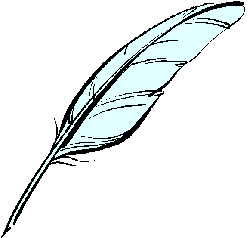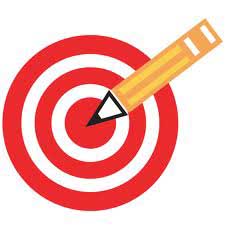Finding Your Target Audience
Finding your target audience is like being the new kid in high school and having to make friends. You can hide out and wait for friends to find you or you can put yourself out there and using trial and error, find the kids who have the most in common with you.
Being cave dwellers, we writers prefer the first method. We believe that if we just write a good story the readers will come. Write it, they will come.
This is one of those urban legends such as an Elvis sighting or an African prince who wants to give you money to get him out of his country. What I’m alluding to here is that method two is the best for writers. With the changing landscape of publishing and the growing population of indie authors, it is more important than ever to find your target audience and connect with them.
Where to start?
HOW OLD ARE YOU?
Actually, I don’t want to know because it’s not about your age, but the age of your readers. If you’re writing about an eighty year old protagonist and his memories of the first moon landing you probably aren’t going to reach a twelve-to-nineteen age group. Your readers will be a more mature audience. If you’re writing about a high school bully, your audience is going to be younger. You’re probably thinking, yes, but Harry Potter was written for a younger audience and adults enjoyed it as much as kids. The key here is Harry Potter was TARGETED to a young audience.
You may say, my novel is for all ages. If your novel crosses age groups, great! Age group 18-29 buys the most books—target them. To maximize your marketing effort, you must designate a target audience first afterwards, the world is your oyster.
GENRE
Luckily the traditional publishing industry has given us guidelines in the way of genres. First, identify what you’re writing: Romance, Contemporary, Paranormal, Mystery. Identify these genres though searching the definition of each. Google and publishing websites are good for this.
Maybe you’re thinking that your book fits in two or more genres. For example, you have a romance but with creatures from another world. So you have a Sci-fi/Romance. Romance Writers of America define a romance novel as one where the primary focus is on the relationship and romantic love between two people and the story must have an emotionally satisfying and optimistic ending. (For your sake we’ll imagine your creatures are people.) Is the main storyline about their relationship or is that a subplot? If it is a subplot then you may be writing a straight Sci-fi novel with romantic undertones. Does the relationship have a happy ending or does one creature fall down a moon crater never to return? Again, maybe you aren’t writing a Sci-fi/Romance but straight Sci-fi.
What’s the difference between Sci-fi and Fantasy? Thriller and Mystery? All this can be found online.
BABY STEPS
Once you have your age group and your genre defined, you start to build your audience. You search for groups and organizations that read and write your genre. I mentioned Romance Writers of America, RWA, but there are organizations built around every genre. Mystery Writers of America, Thriller Writers of America, etc. Join these groups. Talk with other writers writing your genre. Find out where your readers hangout—in real life and online. Learn the buzzwords.
GET SOCIAL
I still go to see my favorite authors at bookstores. Independent Bookstores are often open to setting up an author signing. Contact those in your area and get out there and talk face-to-face with your readers. This is the best way to learn if you’re hitting your target audience. Find out what your readers like about your writing. Next…wait for it…Social Media. You hate it. I know, it takes away from writing, but you must connect with your readers. Find the medium you prefer, FaceBook, Twitter, Pinterest, etc, and stick with it. Make connections. As much as I hate anything that takes me away from my writing, I treasure the contacts I’ve made on FaceBook and Twitter. I’ve found interesting blog posts, I’ve found wonderful books, and I’ve had conversations with people I never would have met otherwise. You don’t have to do them all, but choose one or two and use them religiously.
 SEARCH ENGINE OPTIMIZATION or SEO
SEARCH ENGINE OPTIMIZATION or SEO
This is a little more advanced for writers who’ve already tackled the above. Once you start to learn the lingo associated with your genre, google it. What comes up when you google those words. These words will lead you to other words, and these other words will lead you to other groups, organizations, and readers. Maybe your novel has a knitting circle in it. If you google “knitting” or “knitting circle” you will get terms specific for knitting. You will also find organizations associated with knitting circles. Wouldn’t their members be interested in reading your novel?
Also, these new “googled” words are what you use on your website or blog or book page to target search engines. For example, if I google “mystery” about two zillion sites come up. So then if I do an advance search using “mystery novel” I narrow it down to nine hundred thousand sites. Now if I google “mystery Belvedere” my book The Belvedere Club on Amazon is the first site to come up and my website is the second. What you are looking for in your SEO data are words that make your work standout.
ONE LAST THING
The message I want to leave you with is “Be specific” in targeting your audience. Think of your writing. You don’t use general nouns and verbs to describe something, you use specifics. Do the same thing when targeting your audience.





Comments
Finding Your Target Audience — No Comments
HTML tags allowed in your comment: <a href="" title=""> <abbr title=""> <acronym title=""> <b> <blockquote cite=""> <cite> <code> <del datetime=""> <em> <i> <q cite=""> <s> <strike> <strong>